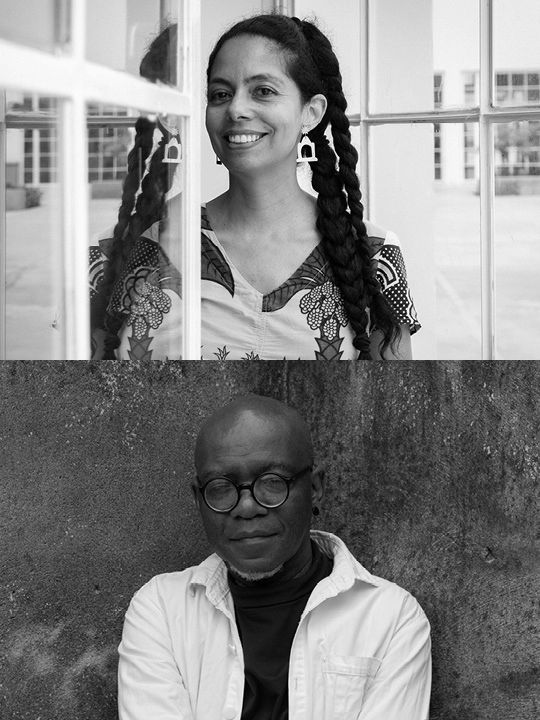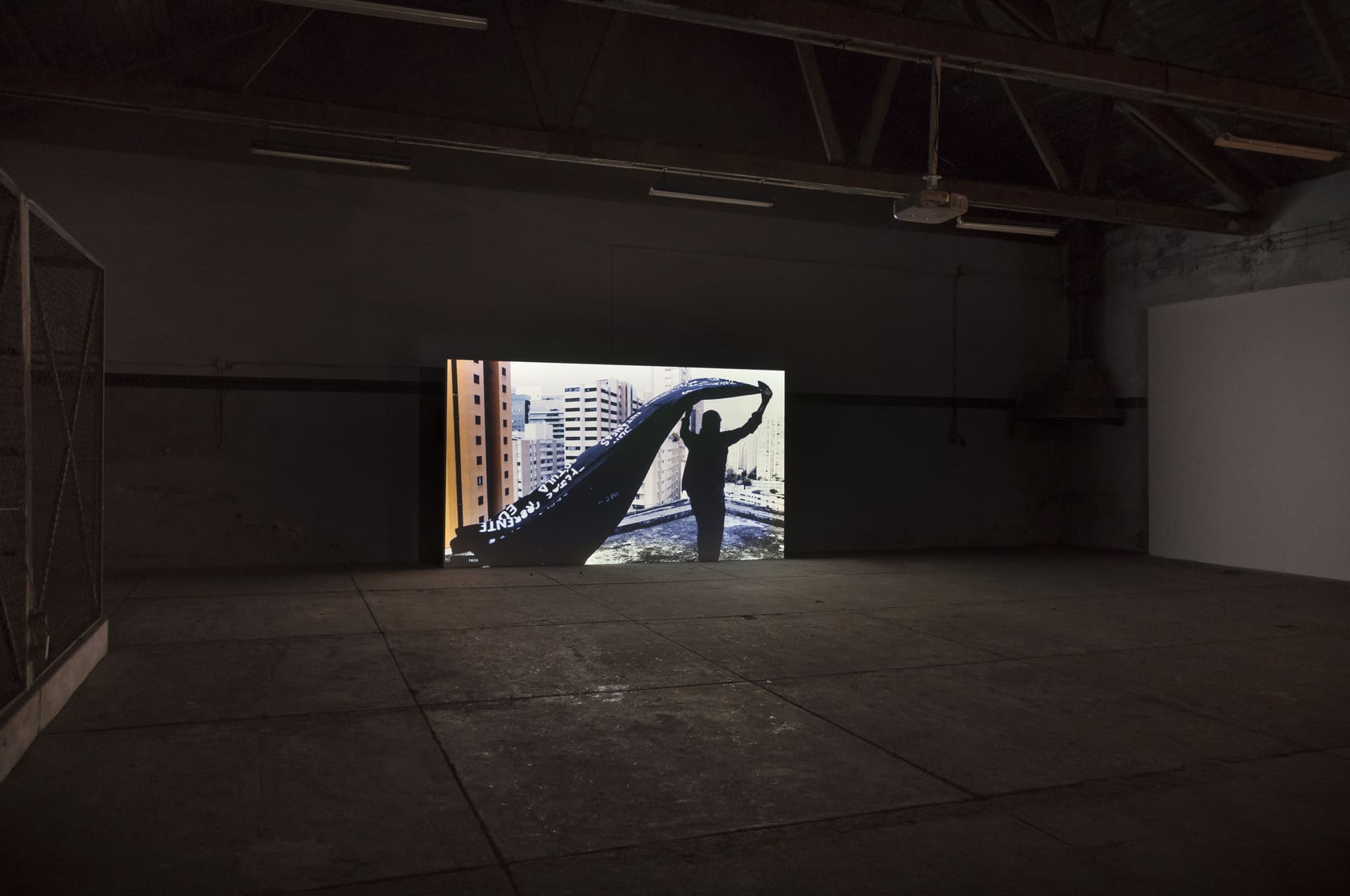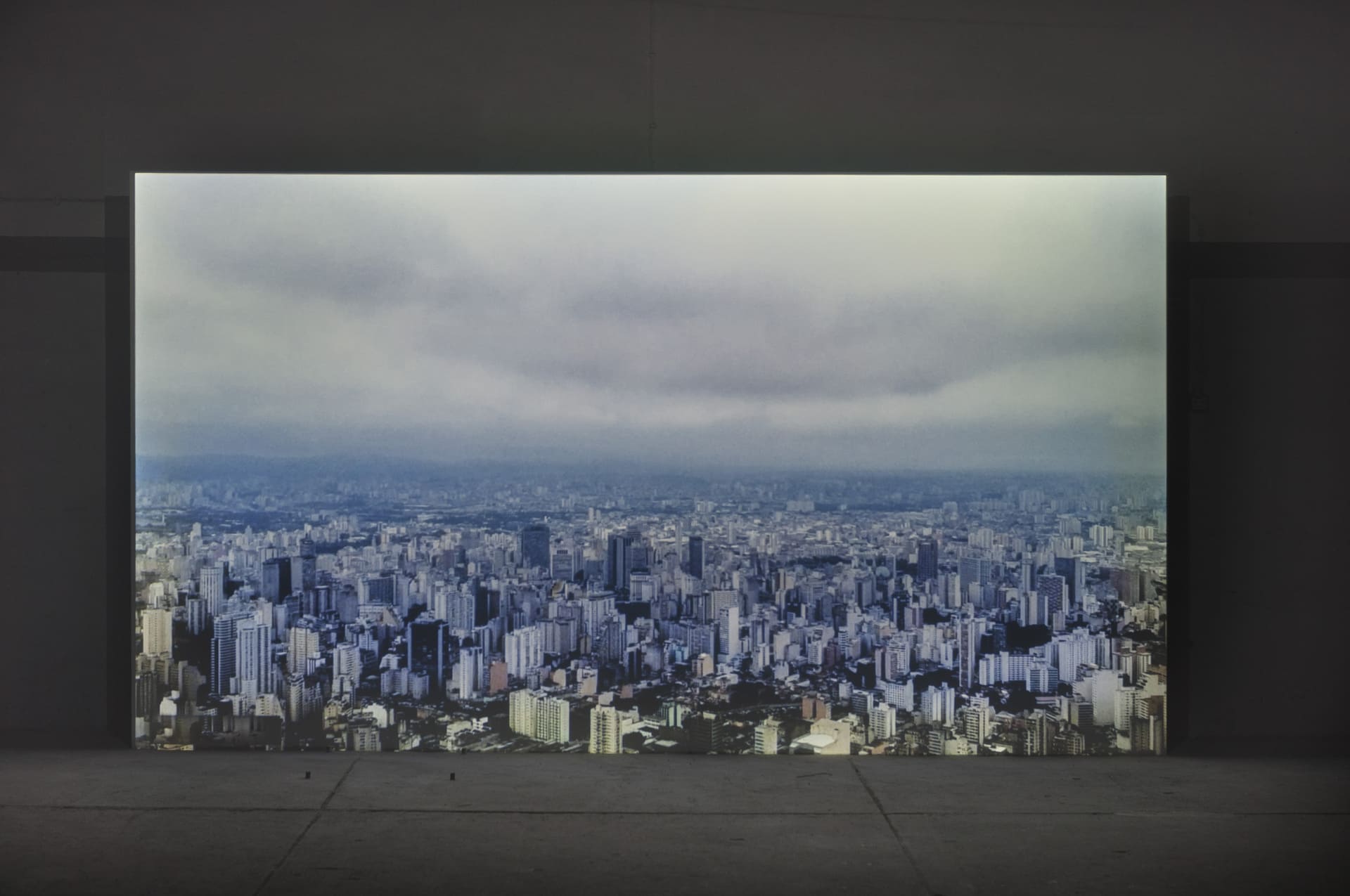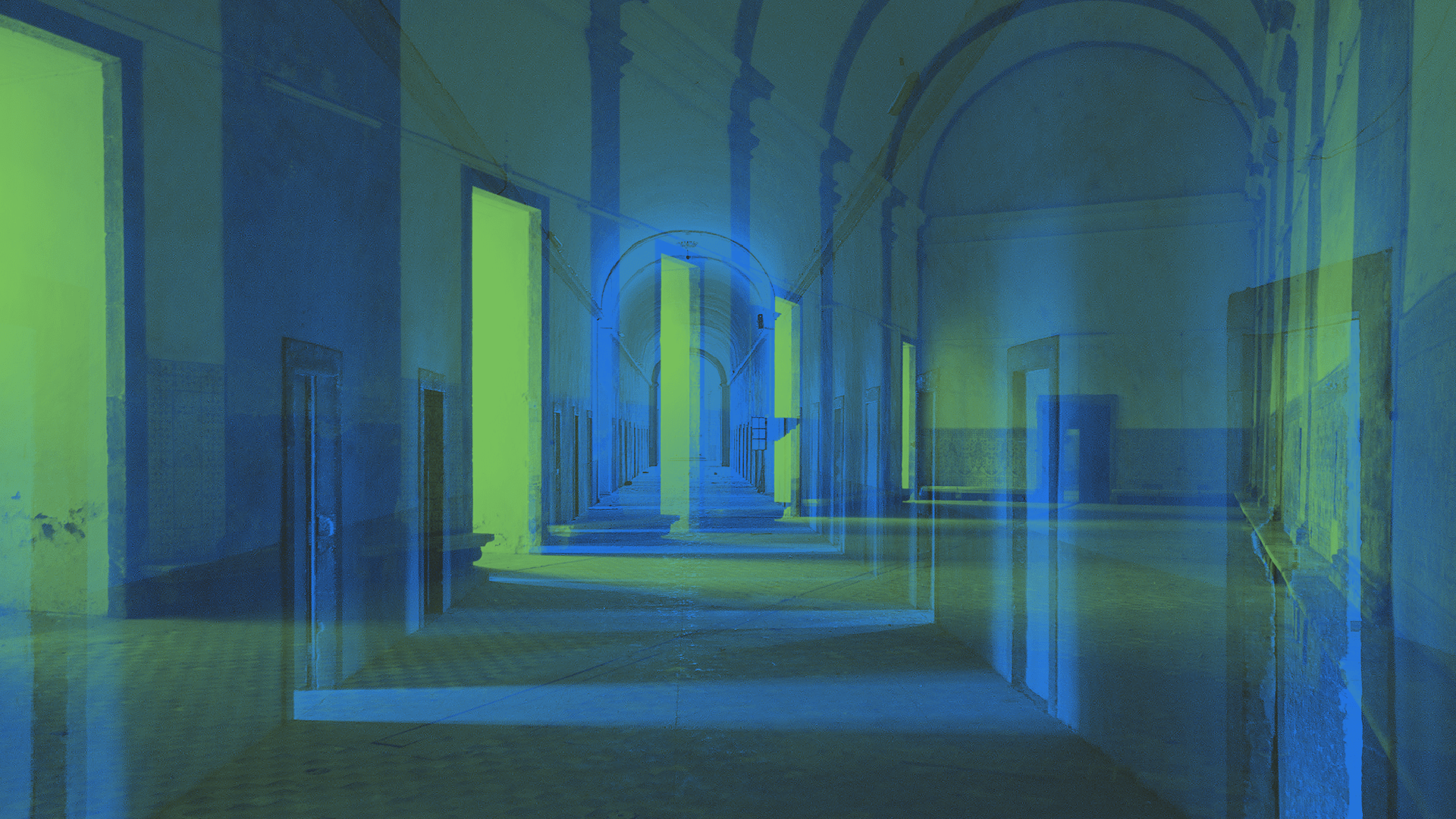Aline Motta
+ Ricardo Aleixo
Aline Motta + Ricardo Aleixo



Brazil,
Aline Motta (Niterói, Brazil, 1974) disorganises and reorganises Brazilian colonial history using speculative elements that arise from extensive research into her own African ancestry. By problematising the mythologies of the ethnic-racial miscegenation of the country’s population, the artist constructs fictions and re-readings that are both intimate and collective, highlighting a violent legacy of erasure common to the peoples of ex-colonial countries. Through writing, video, printed publication, photography and performance, Aline Motta creates her poetics by challenging the silences continued by the dominant historical narrative.
Ricardo Aleixo (Belo Horizonte, Brazil, 1960) composes his lyric from the expansion of poetry, in exercises of “listening to the words and writing the voice”, as he himself defines it. Related to concrete poetry, his writing contemplates the word in its verbal, visual and sound dimensions. Aligning music, performance, radio art, video and dance, Ricardo Aleixo challenges artistic categories and presents the body as an instrument of poetic creation. His writing-performance-music practice involves a wide-ranging reflection on the construction and maintenance of the power relations entrenched in Brazilian society.
Meu Negro, 2021
Video, Colour, 16:9, 7’
Technical data:
Poem, performance, sound design, voices, noise, sound mixing and calligraphy: Ricardo Aleixo; Sound design and audio processing assistant: Natália Alves; Improvised vocalization: Zora Santos; Improvised trumpet solo based on a theme composed by Ricardo Aleixo: Romulo Alexis; Photography: Aline Motta and Fernando Lima; Drone: Fernando Bastos; Editing: Aline Motta; Motion graphics: Marina Quintanilha; Colour correction: Caetano Brenga Bittencourt
Courtesy of the artists.
Meu Negro (2021) is a film by Aline Motta and Ricardo Aleixo. Accompanied by a voice that resonates in the air and declaims the poem of the same name by Ricardo Aleixo, a body performs a “corpography” on top of a building. By carrying the poetic expression within itself, this body simultaneously becomes its recipient and creator. From the paper, poetry is transported to the voice; from the voice, to the body; from the body, poetry is reconstructed, not before being re-signified.
This body carries a “poemanto” on itself (or is carried by it), alluding to the parangolés of Brazilian artist Hélio Oiticica. Thus, between dance and writing, body and word, Meu Negro challenges the ideological and historical construction of the categories of subject and object, affirming the freedom and right to self-determination of non-white peoples.
Aline Motta lives in São Paulo, Brazil. Her work has been exhibited in various international institutions, including: Fundação Bienal de São Paulo, Museu de Arte de São Paulo Assis Chateaubriand, Museum of Modern Art, New Museum, Museu de Arte Moderna do Rio de Janeiro, Instituto Tomie Ohtake, Museu de Arte do Rio, Kunstmuseum Wolfsburg and Stanley Museum of Art. In 2022, she published the book A Água é uma Máquina do Tempo, a finalist for the Jabuti literary prize.
Ricardo Aleixo lives in Belo Horizonte. He is a poet, intermedia artist and researcher in literature, other arts and media. He has published eighteen books. In 2021, he received the title of Notório Saber em Letras from the Federal University of Minas Gerais, equivalent to a doctorate. As a visual/sound artist and performer, he has taken part in several exhibitions at international institutions, including the 35th São Paulo Biennial. In 2023, he won the Masters and Masters of the Arts and Alceu Amoroso Lima — Poetry and Freedom prizes, awarded by Funarte/National Art Foundation and Candido Mendes University/Alceu Amoroso Lima Centre for Freedom, respectively.


